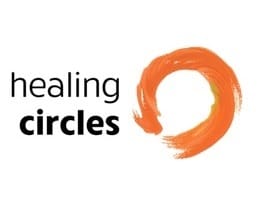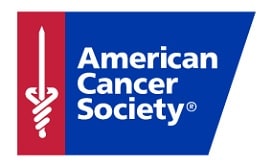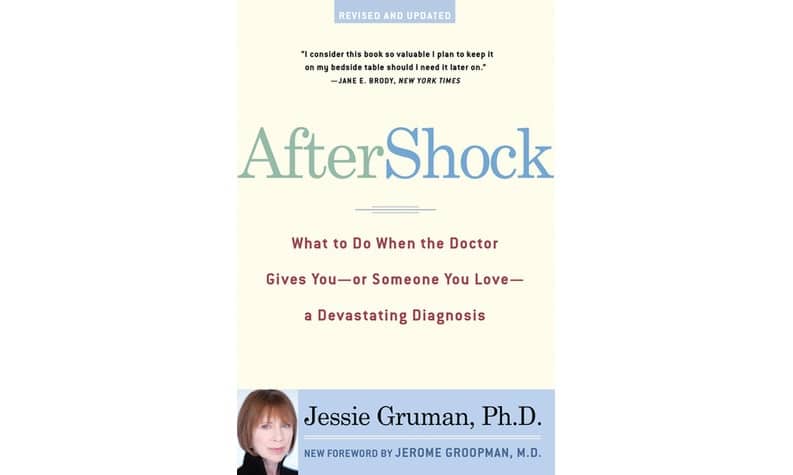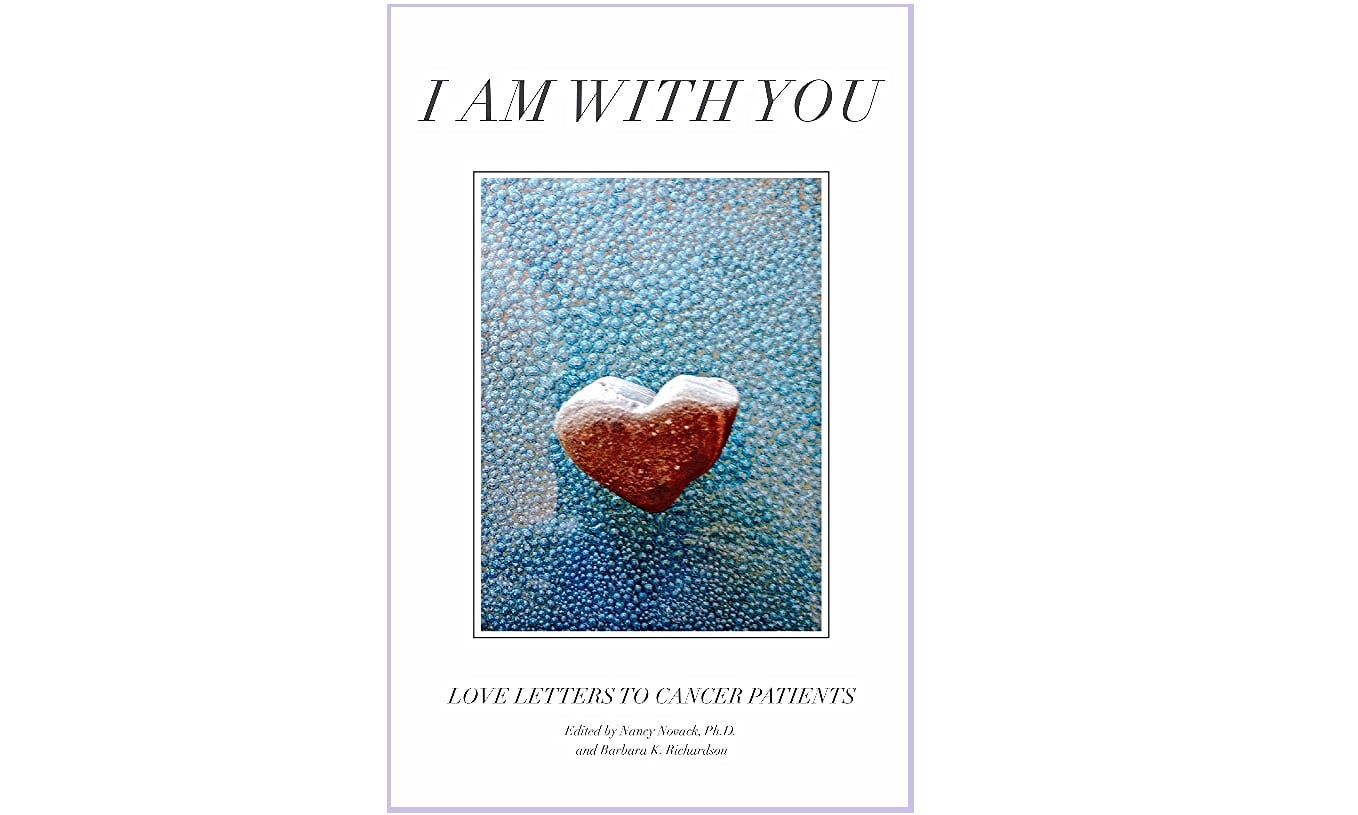In crisis
A letter from Laura
You’ve found your way here because you’re in crisis. Before you try to take any more action other than landing on this page, take a deep breath and think to yourself, “I’m not alone.” Now take another deep breath, let it out slowly and allow the crisis to rest on top of the breath and float outside of you for a moment. Take in another deep breath and let it out and let crisis float out there again for a moment. You’ll get back to tending to it, but for now, you’re going to call on the resilient part of yourself and ask it to help you through this tough time like it has so many times before; ask it to show you all its helpers—your supportive family, friends, co-workers, caregivers and CancerChoices—reassuring you: “I’m not alone.”
A letter from Laura
Just about any phase of the cancer experience can stir up a crisis. Then there are the crises that can come with life outside of cancer. Sometimes cancer and other life crises show up at the same time. Crisis is a time when a difficult or important decision must be made. It can also be a turning point of a disease when an important change takes place, be that recovery or worsening of the illness.1Crisis. Oxford Learner Dictionaries. Viewed June 24, 2022.
Most times, the crisis that cancer creates doesn’t require you to make big decisions right away. First, taking care of the emotions and pain that come with a crisis will put you in better shape to make big decisions. It will also prepare you to undergo the important changes ahead.
My grandmother used to sing a song to me when life seemed tough and overwhelming. It was You’ll Never Walk Alonewritten by Richard Rodgers and Oscar Hammerstein II. Publishers: Williamson Mus. Co.- A Div. Of Rodgers/Hammerstein/Williamson Music/Williamson Music/Williamson Music/Williamson Music Co./Williamson Music Company/Williamson Music Company (Hfa)/Williamson Music/Rodgers & Hammerstein. 1945 from the musical Carousel.
To this day, I can hear her sweet voice singing these words that continue to inspire:
When you walk through a storm
Keep your chin up high
And don’t be afraid of the dark.
At the end of the storm
Is a golden sky
And the sweet silver song of a lark.
Walk on through the wind
Walk on through the rain
Though your dreams be tossed and blown
Walk on, walk on
With hope in your heart
And you’ll never walk alone.
You’ll never walk alone.
(You can find a video of Laura singing this song a bit further down on this page.)
I can give no promise of an outcome, just the message that no matter how hard the walk through the storm is, you’ll not have to do it alone.
Read on to see what we think will help you begin to walk this storm. We, and the helpers in your life, are here to remind you over and over “You’re not alone” and “We can do this.”
Take care,
Laura
Laura Pole, MSN, RN, OCNS
Laura Pole is senior clinical consultant for CancerChoices. Laura is an oncology clinical nurse specialist who has been providing integrative oncology clinical care, navigation, consultation, and education services for over 40 years. She is the co-creator and co-coordinator of the Integrative Oncology Navigation Training at Smith Center for Healing and the Arts in Washington, DC. Laura also manages the “Media Watch Cancer News That You Can Use” listserv for Smith Center/Commonweal. In her role as a palliative care educator and consultant, Laura has served as statewide Respecting Choices Faculty for the Virginia POST (Physician Orders for Scope of Treatment) Collaborative as well as provided statewide professional education on palliative and end-of-life care for the Virginia Association for Hospices and Palliative Care.
For CancerChoices, Laura curates content and research, networks with clinical and organizational partners, brings awareness and education of integrative oncology at professional and patient conferences and programs, and translates research into information relevant to the patient experience as well as clinical practice.
Laura sees her work with CancerChoices as a perfect alignment of all her passions, knowledge and skills in integrative oncology care. She is honored to serve you.
Laura Pole, MSN, RN, OCNS
Laura Pole is senior clinical consultant for CancerChoices. Laura is an oncology clinical nurse specialist who has been providing integrative oncology clinical care, navigation, consultation, and education services for over 40 years. She is the co-creator and co-coordinator of the Integrative Oncology Navigation Training at Smith Center for Healing and the Arts in Washington, DC. Laura also manages the “Media Watch Cancer News That You Can Use” listserv for Smith Center/Commonweal. In her role as a palliative care educator and consultant, Laura has served as statewide Respecting Choices Faculty for the Virginia POST (Physician Orders for Scope of Treatment) Collaborative as well as provided statewide professional education on palliative and end-of-life care for the Virginia Association for Hospices and Palliative Care.
For CancerChoices, Laura curates content and research, networks with clinical and organizational partners, brings awareness and education of integrative oncology at professional and patient conferences and programs, and translates research into information relevant to the patient experience as well as clinical practice.
Laura sees her work with CancerChoices as a perfect alignment of all her passions, knowledge and skills in integrative oncology care. She is honored to serve you.
If you are experiencing a crisis, you may need to deal with your distress and feelings of being in crisis before you can focus on making informed cancer decisions. If you are in crisis, we encourage you to deal with shock and pain first. Recognize if you’re in distress and get help. Then you can begin gathering information and making treatment decisions from a much more grounded and clear space.
If you need immediate help:
Laura Pole, senior clinical consultant for CancerChoices, sings “You’ll Never Walk Alone” from Richard Rodgers and Oscar Hammerstein II.
Play videoShock
Many people go into shock when receiving a cancer diagnosis.
If you feel that you may be in some form of shock, make extra effort to take care of yourself. Practice deep breathing. Stay close to people who care about you. Consider bringing other 7 Healing Practices into your daily routines.
Because shock can make it difficult to think clearly, postpone any non-emergency decisions about medical treatments until you recover from shock if possible. As the shock wears off, you will begin to be in a position to think about medical decisions.
Before making any decisions, ask your physician how long you can take to decide. Often, you can take several weeks or more to consider your options. We have known people who regret that they rushed into treatment without fully understanding the choices available.
Managing symptoms
If you have pain or any other distressing symptoms, make every effort to get help to manage this before you do anything else. One of the strengths of modern medicine is its ability to manage most cancer-related pain and other symptoms.
Integrativein cancer care, a patient-centered approach combining the best of conventional care, self care, and evidence-informed complementary care in an integrated plan approaches can help you manage these and other common symptoms of distress:
Find guidance if financial concerns are contributing to your anxiety, depression, or distress
We emphasize the value of palliativerelieving pain or suffering without dealing with the cause of the condition; palliative care is specialized medical care that focuses on providing patients relief from pain and other symptoms of a serious illness care—medical care focused on managing symptoms and improving quality of life—no matter where you are in your cancer experience. You don’t have to be near the end of life to access palliative care.
Distress
A cancer diagnosis often causes distressemotional, social, spiritual, or physical pain or suffering that may cause a person to feel sad, afraid, depressed, anxious, or lonely; people in distress may also feel that they are not able to manage or cope with changes caused by normal life activities or by having a disease, such as cancer, as can cancer treatments. We know that high levels of distress can contribute to problems in other areas of life, yet doctors typically don’t ask about distress, and patients don’t say anything unless they’re asked. Sometimes distress can hamper your decisions or your ability to prepare for and take treatments. Tell your health care team about your distress. They can connect you with help and resources to manage the distress.
Recognizing if you are in distress
Nearly everyone’s distress is pretty high right at diagnosis and through the beginning of treatment—this is acute distress. Any of the following that are prolonged or interfering with your ability to function may be signals that you might need extra help in managing your distress:
- Sadness, fear, and helplessness
- Anger, feeling out of control
- Questioning your faith, your purpose, the meaning of life
- Pulling away from people, including those close to you
- Constant worrying about your illness
- Constant worries about your social role (as mother, father, caregiver, and so on)
- Poor sleep, appetite, or concentration
- Depression, anxiety, or panic
Describing your distress to your oncology team
Distress can be measured. An oncology social worker, nurse, doctor, or psychologist can conduct a psychosocial assessment—asking about your emotional, social, and financial concerns and challenges. Routine distress screening is not typically done right at diagnosis and the beginning of treatment when nearly everyone’s distress is usually fairly high. Instead, you may be screened for distress a few weeks after treatment starts, when acute distress is expected to ease. A higher level of distress at this time is a signal that you might need a referral for help.
Your cancer treatment team may be proactive and conduct distress screening. However, you don’t need to wait for your care team to ask you about it, especially if your distress is interfering with your ability to cope and function. Let them know of your distress.
If you feel your distress level is too high, take a copy of the completed tool to your oncology doctor, social worker and/or treatment nurse to review and refer you to resources for help.
Soon after your cancer diagnosis, you might ask your doctor if and when someone will be conducting a psychosocial assessment, including distress screening. If your cancer treatment team does not provide assessments, you can ask for a referral to an oncology social worker, oncology nurse navigator, or psychotherapist who can assess your situation and refer you for professional help with psychosocial concerns as well as distress.
Further distress screening tools
Ask for help
If you are experiencing distress, even if it isn’t severe, getting help may be useful. Some suggestions from Cancer.Net:2Deshields TL. How to Recognize Cancer Distress and Cope with It. November 28, 2017. Viewed February 27, 2022.
- Talk to your cancer care team.
- Connect with other cancer survivors.
- Get counseling.
Helpful link on distress
Video
Tips on Moving from Anxiety to Empowerment
Lindsay McDonell, a cancer coach, author, and CancerChoices volunteer guide, speaks to Laura Pole, RN, MSN, ONCS, senior clinical consultant at CancerChoices, about ways to manage anxiety as a person living with cancer.
Play videoBefore making cancer treatment decisions
After you deal with the shock and the pain, and before rushing to make cancer treatment decisions, you might want to stop and ask yourself:
- Are you in a frame of mind, and do you have all the knowledge that you need now, to make sound decisions about your cancer treatment?
- You may have a first impulse to try alternative treatments and delay or avoid conventional treatments. Is this impulse based on facts and evidence or on emotions? Have you investigated the likely outcomes of delaying conventional treatment? Do you need more information to make wise choices?
- Would a second opinion help you understand your diagnosis and treatment options?
Before making any decisions, ask your physician how long you can take to decide. Often, you can take several weeks or more to consider your options.
Once you’re in a calm enough space to think with some clarity, and you know how much time you have for a decision, you’ll be ready to explore all the options for wherever you are on your cancer pathway.
Helpful links

Healing Circles is a safe place to bear witness to it all. Join circles from anywhere, healing ourselves and our planet.
References





